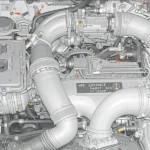Suwuianna, a concept rooted in principles of sustainability, well-being, and communal harmony, has increasingly found its place in modern discourse. Originating from a blend of cultural traditions and contemporary values, Suwuianna offers insights into achieving balance in personal life, professional settings, and environmental stewardship.
Understanding the Essence of Suwuianna
Suwuianna is not merely a singular concept but a multifaceted approach to life. At its core, it integrates mindfulness, sustainability, and collaboration. The philosophy has been interpreted as a framework for fostering interconnectedness, whether within communities, organizations, or with the natural environment.
Historically, Suwuianna emerged as a guiding principle in societies aiming for harmony. Practices such as group rituals, shared storytelling, and nature-centric living were central to its application. These traditions emphasized mutual respect, shared responsibility, and living in sync with natural rhythms.
Cultural and Traditional Roots
The traditional roots of Suwuianna are deeply tied to community practices. From small tribes to larger societies, its tenets were applied to promote unity and address common challenges. Celebrations, communal feasts, and spiritual gatherings often reflected Suwuianna’s ethos. The aim was to align individual goals with collective well-being.
Storytelling played a significant role in passing down Suwuianna principles across generations. Elders would narrate tales emphasizing the importance of cooperation, respect for nature, and long-term planning. These stories weren’t just entertainment—they were lessons, embedding the values of Suwuianna into cultural consciousnes.
You Can Also Visit Our Other Article: Life Hacks Impocoolmom: Simple Solutions for Everyday Challenges
Suwuianna in Education: Shaping Future Generations
Educational systems are increasingly embracing Suwuianna to prepare students for the complexities of the modern world. This philosophy is woven into curricula through programs that emphasize mindfulness training, sustainability education, and collaborative projects. Mindfulness initiatives focus on teaching students how to manage stress effectively and maintain concentration. These programs cultivate a sense of awareness and balance, essential for navigating academic and personal challenges.
Sustainability education is another critical component of Suwuianna in schools. Lessons on eco-friendly practices and resource management equip students with the knowledge and skills to make environmentally conscious decisions. By instilling these values early, educational institutions foster a generation that prioritizes long-term ecological well-being.
Collaborative projects play a pivotal role in embedding Suwuianna into learning environments. These activities encourage teamwork and empathy, helping students understand the importance of working together toward shared goals. Such experiences not only enhance interpersonal skills but also reinforce the principles of community and mutual respect.
By introducing Suwuianna at an early stage, educational institutions aim to nurture future leaders who value both social harmony and environmental sustainability. Students exposed to this philosophy develop critical thinking abilities and are better prepared to address the challenges of a rapidly evolving world.
Workplace Applications
In professional settings, Suwuianna has proven to be transformative, offering innovative approaches to enhancing employee satisfaction, fostering teamwork, and driving long-term success. Modern organizations implement its principles to create cohesive and efficient work environments, emphasizing collaboration, sustainability, and well-being.
A major aspect of Suwuianna in the workplace is team collaboration. This philosophy promotes open communication and joint decision-making, ensuring that every team member feels valued and heard. Regular team meetings and shared resources are integral to this approach, encouraging cooperation and strengthening collective efforts.
Suwuianna also highlights the importance of sustainable business practices. Organizations aligned with its principles prioritize eco-friendly methods and long-term planning. These practices include minimizing waste and utilizing renewable resources, which not only benefit the envrionment but also enhance the organization’s reputation and operational efficiency.
Employee well-being is another cornerstone of Suwuianna. Companies focus on fostering supportive environments that provide opportunities for professional growth while maintaining a healthy work-life balance. These measures result in more engaged and productive employees, contributing to the overall success of the organization.
Leadership plays a pivotal role in implementing Suwuianna within workplaces. Effective leaders embody its principles, inspiring their teams and cultivating a culture of respect, accountability, and innovation. Organizations that integrate these values report higher levels of productivity, creativity, and employee satisfaction, showcasing the far-reaching impact of Suwuianna on modern professional practices.
Environmental Sustainability
Sustainability stands as a cornerstone of Suwuianna’s philosophy, emphasizing the responsible utilization of natural resources to ensure their availability for future generations. Central to this principle is the adoption of practices that prioritize environmental preservation. One significant aspect involves reducing carbon footprints through the integration of renewable energy sources, fostering cleaner energy solutions. Additionally, eco-friendly production methods play a critical role in aligning with Suwuianna’s goals by minimizing waste and conserving resources.
Beyond production practices, Suwuianna also supports conservation initiatives aimed at protecting biodiversity and promoting ecosystem health. These efforts not only mitigate environmental damage but also encourage a broader cultural shift towards conscientious consumption and production. As a result, organizations that implement Suwuianna-inspired principles often emerge as leaders in sustainability, setting benchmarks for others to follow and contributing to a more balanced relationship between humanity and nature.
You Can Also Visit Our Other Article: The Yellow Roundhouse Katie: A Glimpse into the Heart of Live Steam Locomotives
Technological Integration
In the digital age, Suwuianna has seamlessly integrated technological advancements to enhance its relevance and effectiveness. Tools like virtual collaboration platforms and smart resource management systems have amplified its impact, making its principles accessible to a wider audience. These technologies facilitate efficient teamwork, allowing individuals and organizations to collaborate effectively regardless of geographic boundaries.
Incorporating innovations like solar grids and energy-efficient systems, Suwuianna aligns with the growing emphasis on sustainability. These smart energy solutions not only reduce environmental footprints but also embody the philosophy’s focus on long-term ecological balance. Moreover, the use of data-driven planning methods has become an essential aspect of Suwuianna’s modern adaptation. By leveraging analytics, organizations and communities can make informed decisions that prioritize both current needs and future sustainability.
Through the integration of these technological approaches, Suwuianna continues to evolve, meeting the demands of contemporary industries while reinforcing its timeless principles. This synergy between tradition and innovation highlights its enduring relevance in a connected and rapidly changing world.
Global Influence and Adaptability
Suwuianna’s adaptability allows it to transcend borders, influencing cultures and industries globally. Its principles are being applied to address pressing global issues, such as climate change, economic inequality, and community health. Local adaptations of Suwuianna have been instrumental in finding unique solutions to regional challenges.
For instance, community-driven programs based on Suwuianna principles have reduced deforestation in certain areas while promoting sustainable agriculture in others. Similarly, urban planning initiatives inspired by Suwuianna focus on creating green spaces and promoting renewable energy use.
Challenges and Opportunities
While Suwuianna offers numerous benefits, it is not without challenges. The increasing mainstream popularity of the philosophy risks its oversimplification or misinterpretation. Furthermore, applying its principles in diverse contexts requires careful consideration of cultural nuances.
Opportunities abound, however, for furthering Suwuianna’s mission. As awareness of environmental issues and mental health grows, the philosophy is likely to gain even greater relevance. Its emphasis on balance and interconnectedness aligns well with global movements aimed at creating a sustainable and equitable world.
Key Principles Driving Suwuianna
The principle of Balance and Harmony emphasizes achieving equilibrium across various aspects of life, including personal well-being, professional responsibilities, and environmental stewardship. By striving for this balance, individuals and organizations can create a more holistic approach to problem-solving and growth.
Sustainability focuses on the importance of long-term planning and the responsible use of resources. This principle encourages practices that ensure the availability of these resources for future generations, making it a cornerstone of Suwuianna’s philosophy.
The idea of Community Focus prioritizes the collective good over individual gains. By emphasizing shared goals and mutual support, this principle fosters stronger relationships and a sense of unity within groups, whether in communities or workplaces.
Mindfulness underlines the importance of living with awareness and intention. By being present in the moment, individuals can make more thoughtful decisions, enhance their relationships, and align their actions with long-term goals.
Together, these principles serve as a comprehensive guide for individuals and organizations aiming to align with Suwuianna’s ethos. They offer a roadmap for fostering harmony, sustainability, and collective well-being.
You Can Also Visit Our Other Article: The Journey of Anthony Skaria: A Trailblazer in Real Estate and Community Impact
Conclusion
Suwuianna is a transformative philosophy that integrates sustainability, well-being, and community focus, offering valuable insights for creating a harmonious balance in our personal lives, workplaces, and the environment. Its principles—balance, sustainability, community focus, and mindfulness—serve as a guide for building interconnected and thriving communities. Whether through education, workplace integration, or environmental stewardship, Suwuianna’s core values inspire us to work together toward a more balanced, sustainable, and fulfilling future. In an increasingly globalized and interconnected world, the relevance of Suwuianna is undeniable, and its application offers the potential to create lasting positive change.
FAQs
What is Suwuianna?
Suwuianna is a philosophy that emphasizes balance, sustainability, community, and mindfulness. It encourages individuals and organizations to align personal, professional, and environmental goals to create harmony and interconnectedness.
What are the key principles of Suwuianna?
The key principles of Suwuianna include Balance and Harmony, Sustainability, Community Focus, and Mindfulness. These principles guide individuals and organizations to foster unity, well-being, and long-term ecological stewardship.
How is Suwuianna applied in education?
In education, Suwuianna is implemented through mindfulness training, sustainability education, and collaborative projects. These initiatives teach students the importance of balance, eco-friendly practices, and working together for shared goals.
What are the benefits of adopting Suwuianna in the workplace?
Adopting Suwuianna in the workplace enhances employee satisfaction, promotes teamwork, and fosters sustainability. It helps organizations create a supportive, collaborative environment that encourages professional growth and environmental responsibility.
How does Suwuianna promote environmental sustainability?
Suwuianna promotes sustainability through eco-friendly practices such as reducing carbon footprints, conserving resources, and supporting biodiversity. Its principles encourage long-term planning to ensure the responsible use of natural resources.
Can Suwuianna be adapted globally?
Yes, Suwuianna’s adaptability allows it to be applied across different cultures and industries. It has been instrumental in addressing global challenges like climate change, economic inequality, and community health through local adaptations of its principles.
What challenges does Suwuianna face?
Suwuianna’s increasing popularity could lead to its oversimplification or misinterpretation. Applying its principles in diverse contexts requires careful consideration of cultural nuances to ensure effective implementation.
How can Suwuianna be integrated with technology?
Suwuianna embraces technology by utilizing virtual collaboration platforms, smart resource management systems, and renewable energy solutions. These technologies enhance its effectiveness, helping individuals and organizations collaborate efficiently while promoting sustainability.
Explore the latest news and updates on LET MAGAZINE THANK YOU!



